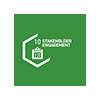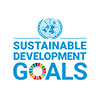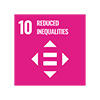Lobbying
We believe that it is appropriate that we take an active and constructive role in public policy development, either directly or indirectly through our membership of industry organisations.
Our approach
We develop and maintain constructive relationships with the governments of our operating countries. Our Group Political Engagement Policy requires that:
- We only engage in the political process for legitimate business objectives and in compliance with applicable laws.
- We engage transparently, and we do not seek to influence the political process by improper or corrupt means.
Evolving regulatory developments and scrutiny of our advocacy activities require that we hold consistent positions on public policy. We communicate these positions both directly through our engagement with government representatives and policy makers, as well as through the industry organisations in which we hold memberships.
Responsible political engagement is critical for maintaining trust in the political process and ensuring that legitimate points of view are heard by public decision makers in order to support effective policy decisions in the interests of all stakeholders.
We occasionally engage in public policy debates on subjects of legitimate concern to our business, employees, customers, suppliers, end users and the communities in which we operate. Our Group Political Engagement Policy further requires that all lobbyists, both employees and third parties acting on our behalf must:
- disclose, when making representations for Glencore that they are acting on Glencore’s behalf, and the purpose of the representations;
- not make representations inconsistent with Glencore’s Values and Code of Conduct, and our positions on material issues;
- must comply with all relevant Glencore policy and procedural requirements and applicable legislation, including registering and reporting requirements;
- not make misleading or inaccurate statements in their representations on behalf of Glencore;
- not seek to influence the political process by unfair or corrupt means; and
- conduct themselves transparently, honestly and with integrity.
We do not, directly or indirectly, employ public officials to engage in political advocacy or lobbying on Glencore’s behalf.
Political contributions
In accordance with our Group Political Engagement Policy, we do not favour any political party, group or individual. We must not permit any funds or resources to be used to contribute to any political campaign, political party, political candidate or any politically affiliated organisation.
More specifically, our policy states that we must not:
- use Glencore funds to attend or otherwise support political fundraisers;
- provide Glencore premises for an organised party-political event;
- use Glencore facilities to publish, reproduce or distribute political messages;
- use Glencore working time or other resources for political activity (unless applicable law entitles us to time off for political duties, and Glencore has agreed to pay for this time), or
- even where permitted to do so by local law, set up corporate political action committees to raise and spend money for political purposes.
These prohibitions do not prevent us from using Glencore resources to support state-led initiatives such as business forums.
Our people may make personal political contributions and be involved in political activity in their own time. However, when doing so, they must not give the impression that they are doing so on behalf of Glencore.
Member organisations
We participate in member organisations – such as trade, business and industry associations and groups – which may engage in lobbying or other public policy advocacy including making representations to public officials or government authorities.
We annually report on our direct and indirect advocacy activities and provide a comprehensive list of our member organisations.
Find further information on our participation in member organisations.
Principles we follow
-
 UN Global CompactVisit the website
UN Global CompactVisit the website -
 Principle 10Read more
Principle 10Read morebusinesses should work against corruption in all its forms, including extortion and bribery
-
ICMMVisit the website
-

-
 UN SD GoalsVisit the website
UN SD GoalsVisit the website -


